
12 minute read
1 Going underground

1.1 Relic
Writers deliberately choose what information to reveal to the reader about certain characters. For example, they might give explicit information about a character’s circumstances so the reader can work out why that character takes certain actions later on.
Focus

1 Read this extract from Darkparis. Underline the key information about Louis’s apartment, then briefl y summarise the impression this extract creates of
Louis’s life.

Louis opened the door to his apartment and switched on the light. Everything was organised and neat. Everything was in its place. The walls were painted cream and the little kitchen was perfectly clean. Most people would think it a very pleasant apartment. But for the fi rst time, Louis noticed how bare it looked. Table, chairs, TV, rug, clock . . . it seemed somehow empty. He stood for a moment and listened to the silence. He had lived here for almost a year. The only photograph in the room was of a smiling Louis with his school friends. They’d gradually lost contact over the months. In that moment he decided – he would go to meet Relic.

Practice
2 Reread the fi nal sentence of the extract, then write a paragraph explaining why you think Louis decides to meet Relic. Comment on how the information in the rest of the extract helps you understand his decision. Use quotations in your answer.
Challenge
3 In your notebook, write a paragraph like the one from Darkparis, in which you provide details about a character’s actions or surroundings to allow the reader to work things out about them. You could use the image below to inspire you, or come up with an idea of your own.





1.2 The Doorkeeper
Language focus Punctuation can be used for rhetorical purposes. This means that punctuation marks such as question marks, exclamation marks and ellipses can shape an argument or suggest something about a character or situation. A question mark can be used to signal a rhetorical question. It can also create a variety of tones, such as making a speaker sound slightly threatening or surprised (‘Why on earth did you make that choice?’). Exclamation marks can also create different effects, such as excitement (‘Welcome to your new life!’) or anger (‘I insist you leave now!’). Ellipses may suggest a variety of emotions or moods, such as nervousness/ hesitation (‘Please . . . can I leave now?’) or a sense of drama (‘And now . . . here it is!’).
Focus
1 Read the following conversation between the characters Louis and Relic from
Darkparis. Explain how ellipses, question marks and exclamation marks help to suggest things about the characters’ attitudes and feelings.
‘Relic,’ whispered Louis. ‘I’m . . . I’m not sure about this . . . Where are we going?’ ‘Haven’t I already explained?’ said Relic. They walked in silence. Then Louis asked how much further it was. ‘You don’t have to be here, you know. In fact, go home!’ Relic declared sharply.

Practice
2 Rewrite the following extract, altering the punctuation and adding ellipses and exclamation marks to help suggest the characters’ personalities.
‘Stand back and watch carefully,’ said The Doorkeeper in hushed tones. ‘You’ve waited your whole life for this.’ Louis held his breath and watched as The Doorkeeper slowly turned a key in a door in the wall and pushed it open. Louis stared in horror at the awful thing that appeared. ‘What is that?’ whispered Louis, barely breathing.

Challenge
3 Write the paragraph that follows on from the extract above. You can decide what happens. Use dialogue that includes ellipses, question marks and exclamation marks to suggest the characters’ attitudes and feelings.

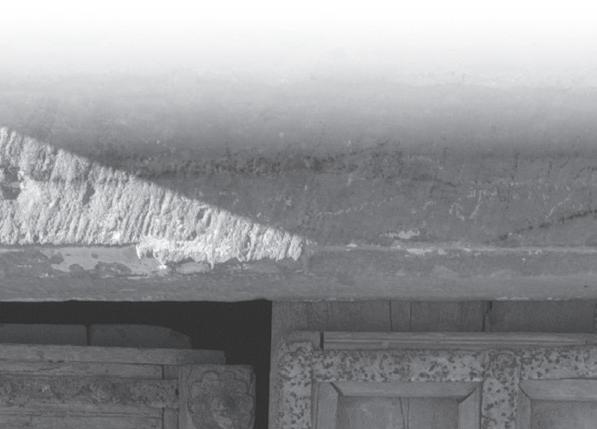



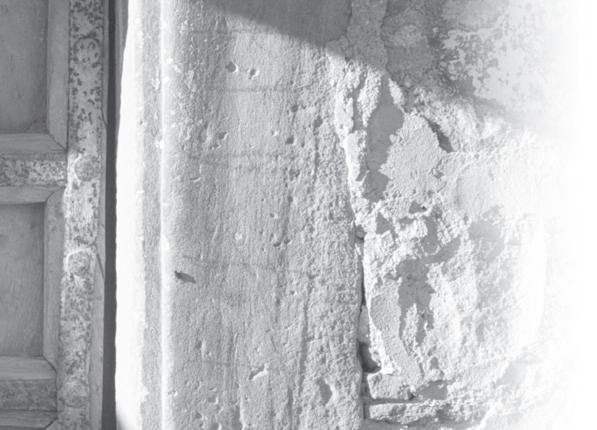
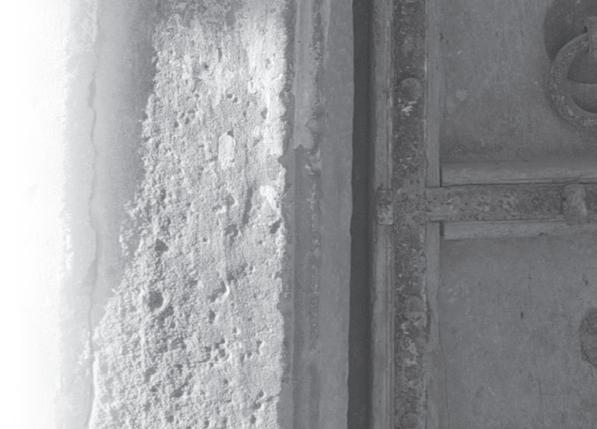


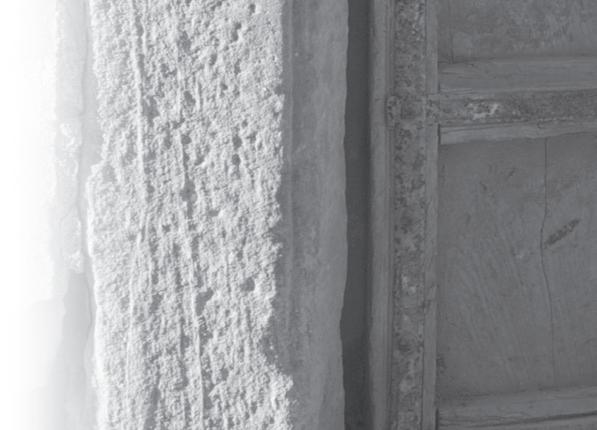
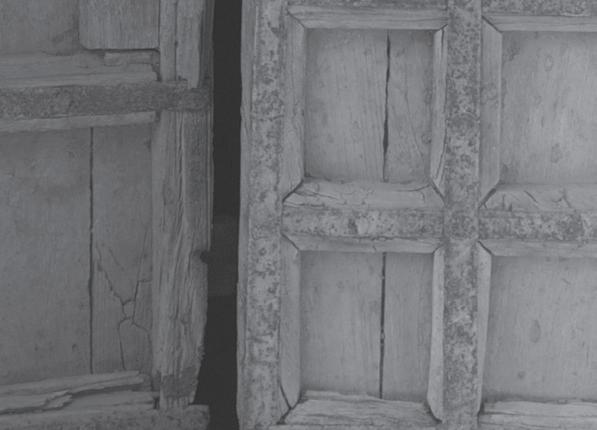


1.3 Reviewing Darkparis
When analysing two or more texts together, you need fi rst to locate information, then trace and summarise it. The next stage is to synthesise it, which means bringing details together to fi nd links and make overall points.
Focus
1 Here are two reviews of Darkparis. Using two different colours, highlight the positive and negative points made in each review.
Floyd: The ending of this book is amazing. It was the character of The Doorkeeper that grabbed my interest at rst, because he seemed so mysterious, and that’s what kept me reading because I wanted to nd out who he was and why he needed Louis to help him. I did lose a bit of interest in the middle of the book – the bit where The Doorkeeper goes missing – but in the last few chapters, there are so many things happening and when The Doorkeeper came back and said his last words, it was brilliant.
Hyen: Like my friends, I mostly enjoyed Darkparis. The ending of the book wasn’t as good as I’d hoped, but the character of The Doorkeeper was the best in the story. I liked the way he was mysterious, but also was weak too and needed the help of other people to survive. The middle chapters of the book, where the setting changes to the island, were my favourite part. Relic was interesting too – I think the writer should have involved her more in the story.

Practice
2 Briefly summarise the positive and negative points from the two reviews in the
Focus activity in one paragraph.
Challenge
3 The publishers of Darkparis have said this about the book: ‘Everyone who reads the book thinks it’s the best thing they’ve read.’
Using the information from the previous activities, explain whether you think this is true and why. Use examples from the reviews above in your answer.
1.4 The second test
One key choice made by a playwright is how much information to give to the audience at various points in the play. Withholding information can be an important device for creating effects such as mystery or tension.
Focus
1 Read the following scene from a script. You should then complete the two tables to identify what information Louis and the audience do or do not have.
LOUIS is in a large underground area. He is walking slowly along a pathway. His hands are tied behind his back and he has a blindfold covering his eyes. LOUIS Hello? Is anyone there? Around the next corner, THE DOORKEEPER and RELIC can hear LOUIS approaching. THE DOORKEEPER (to RELIC) This will be a real test for him. Then we’ll know.





LOUIS turns the corner. Further down the path, there is a gap that leads a long way down under the earth. LOUIS continues walking slowly towards it.





What Louis knows
What the audience knows What Louis does not know
What the audience does not know
Practice
2 What effects are created by the different levels of knowledge that the character and the audience have? Write a summary, explaining: • how you feel towards Louis • how you feel towards The Doorkeeper and Relic • what you still do not know by the end of the scene.
Challenge
3 Write your own brief scene like the one in the Focus activity, in which the characters and the audience have different levels of knowledge. Structure your scene to create different effects. You could use the idea below or one of your own:
A boy is proudly walking down a street in his best clothes. His mischievous younger brothers are hiding in a bush with a hosepipe . . .
1.5 Visiting Coober Pedy
Language focus Writers often make comparisons to help readers picture or understand a topic. Literary techniques such as simile and metaphor are particularly effective ways of making comparisons, and writers may repeat and develop a comparison throughout a text as an extended metaphor. Look at this example from a piece of travel writing. The writer uses water-based comparisons to show the heat of a desert town: • The haze of heat distorted Mandora, making the town look like it was under water. In the dazzling light, the shape of human bodies seemed to shift as waves of heat rippled. People swam slowly towards me, their limbs fl ailing and their faces made wide by the watery midday world. Notice how the references to water and swimming contribute to the overall purpose of the description. The comparison shows the reader clearly how hot it is in the desert, as well as how the power of nature can alter the way we perceive our surroundings.
Focus
1 Read the following paragraph from a piece of travel writing, then briefl y explain what the city of Dhaka is being compared to. Tentacles are long arms.
The tentacles of Dhaka
The glowing red eyes of the two towers in the distance stared at me. Above them, a huge head of smoke hung. This city was dangerous. I had to escape, but everywhere I turned, the tentacles of Dhaka reached out for me. The streets pounded like a heartbeat below my feet, and the threatening growl of the city was everywhere. Dhaka had me in its sights. I was its prey.

Practice
2 Explain the effect and overall impact of the extended metaphor in the passage.
What impression does it create of the city and of the narrator’s state of mind?









Challenge
3 Write a description of a place using an extended metaphor. You could base your writing on the picture on the previous page, or use an idea of your own.
1.6 Living under the ground
Towards the end of a piece of travel writing, the writer usually sums up what their travels have taught them about the places they visited, as well as commenting on human life and culture.
Focus
1 Read the last paragraph of a learner’s piece of travel writing about Matmata.
Tick the statement(s) that best describe what it shows.
Leaving Matmata
Climbing back in to the sunshine, I felt I’d changed. Having spent a week underground, I found out that these local people, who I thought were going to be very different to me, were very much the same in lots of ways. They wanted their families to be happy, and they wanted to be healthy. I looked back at the person I was before I came here, and felt slightly ashamed. As I drove away back to my beautiful home and nice life, the villagers waved me off with smiles and good wishes.

a There are many different ways of living, and they are all equal. b In the modern world, it is difficult to live without modern facilities. c People who live privileged lives are often patronising. d Humans have the same feelings and ambitions wherever they live. e Modern living is destroying old ways of living.
Practice
2 Write a paragraph explaining why you chose the statement(s) you did in the
Focus activity. Use details from the text in your explanation.
Challenge
3 Now write the important final paragraph of a piece of travel writing yourself, based on the description below. Experiment with different ways of ordering the paragraph to achieve the effect you want.
Imagine you are leaving the busy city of Shanghai by train and are reflecting on the week you spent there. At first you found it difficult being in such a busy place, but you have met many friendly, helpful people in Shanghai.






















